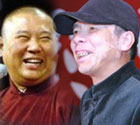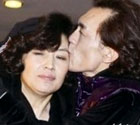Criticism of nearly 100 Chinese Economists on the Over-Issuing of U.S. dollar in Chorus
(Financial News ifeng.com) On the eve of the opening of 2011 Summer Davos, nearly 100 Chinese economists criticized the easing monetary policy adopted by the Federal Reserve with harsh words.
Financial News Channel of ifeng.com interviewed these economists and collected their opinions on the over-issuing of dollars which will continue to be discussed in depth on the Summer Davos Forum.
Most economists held that the loose monetary policy could only scratch the surface of a problem but not fix out the root causes. The problems existing in American economic structure could not be fixed out by short-term monetary policy. At the same time, the loose monetary policy would result in the flood of liquidity, exacerbating the global inflationary pressure, especially in the emerging market.
Up to now, the US has implemented two rounds of quantitative easing policies, and the critics held that the two rounds were of no help to US economy. Xu Xiaonian, Professor of Economics and Finance, China Europe International Business School, said “Why pursue QE3? Because QE2 is ineffective. Since QE2 is ineffective, why do we believe QE3 will work?”
According to the latest released statistics, in August, the unemployment rate in nonagricultural sector in US remained a high level of 9.1%, the housing starts of new houses declined slightly in July after two-month consecutive growth, and the real estate market was still weak to recover.
Criticism of 100 economists on over-issuing of U.S. dollar
Nearly 100 economists criticized the over-issuing of U.S. dollar, including the leading authority in economics of China, and the western economic masters.
Zhang Wuchang, Professor of School of Economics and Finance, University of Hong Kong, criticized that “The global financial crisis broke out three years ago, the Federal Reserve made quick response to it. However, up to now, the monetary policy the Federal Reserve adopted has shown little achievements to the world. The spending-money policy admired by Keynesian School failed in the financial crisis firstly, and the monetary regulation is at the end of its use.
Wu Jinglian, senior researcher of Development Research Center of the State Council (DRC) held that an international mechanism used to control the dollars issuance was the minimum requirement for international financial system reformation, Jit can be explained in rude expression that to bridle the mechanism for dollars issuance.
Xia Bin, member of China’s Central Bank Monetary Policy Committee criticized more harshly, he said “The U.S. so-called ‘quantitative easing’ (QE) monetary policy, in fact, is the policy for the creation of money. If U.S. insists on doing so, it will cause the flood of liquidity throughout the world, and a great quantity of hot money will flow into emerging markets.” He thought that China should conduct capital control confidently to prevent and control risk without mercy.
Zhou Qiren and Li Daokui, members of China’s Central Bank Monetary Policy Committee, also expressed their doubts on easing monetary policy. Zhou Qiren spoke directly "The global reserve currency is used for the global trading services. If U.S. dollar becomes depreciated, the victim will be not only U.S. itself. However, the benefits of U.S. debt are nearly the monopoly of U.S. itself. Li Daokui warned that China should prevent the hot money inflow and inflationary pressure brought by U.S. QE3. He also warned that China should be on guard against the results of redistribution of wealth caused by QE3.
Zhiwu Chen, Professor of Finance at the School of Management at Yale University said “Personally, I’m absolutely against passing the quantitative easing policy, because this means U.Sc dollar depreciation in disguised form which will decrease the actual burden of U.Sc debts, and transfer the wealth of other countries and mass investors in disguised form.
Christopher A. Pissarides, the winner of Nobel Prize in economics in 2010 held that the quantitative easing policy adopted by the Federal Reserve will offer little help to the employment market since pools of liquidity has already existed in the US economy.
Dispute on RMB appreciation
How should China deal with the inflationary pressure brought by the over-issuing of U.S. dollar and depreciation risk of huge foreign reserve?
Xia Bin suggested that, in addition to the capital control, China, on the one hand, must cooperate with international communities to jointly call for a boycott of the irresponsible currency over-issuing conducted by U.S.; on the other hand, China can absorb such resources as bulk commodity, raw materials by bargain-hunting, which is helpful for China to regulate domestic market price and fend off the negative impact of external factors on China.
Independent economist Xie Guozhong proposed to liberalize foreign exchange rate to deal with dollar risks. He said, eRMB exchange rate shall enjoy free fluctuation and abandon RMB's peg to U.S. dollar thus China will have no need to buy dollar assets.
Economists held different opinions on should RMB appreciate or not and how to rise. John Brian Taylor, Professor of Economics at Stanford University suggested that the appreciation of RMB might let the People’s Bank of China (PBOC) pay more attention to interest rate policy and inflation control.
Huang Yiping, Professor of National School of Development, Peking University favored the opinion on RMB appreciation, he said, YLet’s look back and see why the trade surplus of China is so huge, and why the foreign reserve increased so much. The reason lies on the fossilized exchange rate policies of China. The Chinese government continuously buys the foreign reserve so as to prevent the appreciation of exchange rate. Therefore, the increase in foreign reserve lead to a series results, ises more liquidity, huge trade surplus and heavy inflationary pressure.
The famous economist Mao Yushi, participating in the first financial saloon held by ifeng.com “RMB exchange rate and foreign reserve strategy” roundtable forum, expressed that RMB appreciation can solve the problem of quick increase in newly-added foreign exchange, and relieve the domestic inflationary pressure as well.
He further pointed out that, although RMB appreciation will bring pressure to export enterprises, the phenomenon of large-scale unemployment will not occur. It can be explained in two reasons: first, labors in export enterprises are not sufficient; second, the domestic products are abundant, so the employment can be driven by the consumption.
Zhiwu Chen didn’t agree with RMB appreciation. He said that, if the estimation was made in line with the purchasing power of RMB and U.S. dollar completely, CI think, in fact, RMB is over-estimated now, and shall depreciate in the future.
More economists held similar opinions with Professor Xu Xiaonian: “Personally, I’m inclined to the gradual appreciation in small steps. Moreover, with the anticipation of appreciation, do not easily reveal your bottom cards like appreciation schedule to the public, otherwise hot money will flow into China on purpose and designedly.
QE3 failed to be launched, QE3 in disguised form or may promulgated
The long-discussed QE3 has not been launched yet, and there were sharp differences in the Federal Reserve. There were, at least, three voting members of Federal Open Market Committee (FPMC), the policy-making body of the Federal Reserve, expressed their objections against QE3. Some members without voting rights this year also didn’t support the adoption of more quantitative easing policies.
Kocherlakota, President of the Federal Reserve Bank of Minneapolis,said that the current situation of U.S. economy has been improved significantly compared with that when the Federal Reserve launched the last round of bond purchase in November last year, and the U.S. Federal Reserve had no need to adopt further stimulus measures.
Richard W. Fisher, President of the Federal Reserve Bank of Dallas and Charles I. Plosser, President of the Federal Reserve Bank of Philadelphia all said that, it seemed that a major consideration for further loosening monetary policy was to stimulate the stock market, but such policy was helpless to promote the economic growth. Plosser even believed that, the estimation made by the Federal Reserve last week was too negative, and it may need to start the interest rate increase before 2013.
On August 26, 2011, Bernanke, President of the Federal Reserve, mentioned nothing about the QE3 at the annual global central banking conference at Jackson Hole as expected. However, at the annual global central banking conference last year, Bernanke expressed his attitude towards the launch of QE2 clearly.
But the market held that, although Bernanke mentioned nothing about QE3, the launch of QE3 was only a matter of time. This was because Bernanke admitted that U.S. economy was more sluggish than expected, and suggested that the policy-making meeting by the Federal Reserve in September would launch instruments to stimulate economy.
Yin Jianfeng, Director of Structural Finance Research Room, Institute of Finance and Banking, Chinese Academy of Social Sciences also pointed out that, no matter QE3 would be released or not, U.St would carry out the QE3 in disguised form.
On September 8 (in U.Se time), U.Se President Barack Obama released the employment stimulus plan which may cost USD 447 billion, which may verify the judgment of the market.
Analysts believed that, the Obama employment stimulus plan will become the QE3 in disguised form if it obtains the approval from the U.S. Congress, which will bring more imported inflationary pressure to China. (by Ma Dejun) ![]()
相关专题:2011夏季达沃斯论坛
免责声明:本文仅代表作者个人观点,与凤凰网无关。其原创性以及文中陈述文字和内容未经本站证实,对本文以及其中全部或者部分内容、文字的真实性、完整性、及时性本站不作任何保证或承诺,请读者仅作参考,并请自行核实相关内容。
湖北一男子持刀拒捕捅伤多人被击毙
04/21 07:02
04/21 07:02
04/21 07:02
04/21 06:49
04/21 11:28
频道推荐
商讯
48小时点击排行
-
2052232
1杭州某楼盘一夜每平大降数千元 老业主 -
992987
2杭州某楼盘一夜每平大降数千元 老业主 -
809366
3期《中国经营报》[ -
404290
4外媒关注刘汉涉黑案:由中共高层下令展 -
287058
5山东青岛住户不满强拆挂横幅抗议 -
284796
6实拍“史上最爽职业”的一天(图) -
175136
7媒体称冀文林将石油等系统串成网 最后 -
156453
8养老保险制度如何“更加公平可持续”





















所有评论仅代表网友意见,凤凰网保持中立